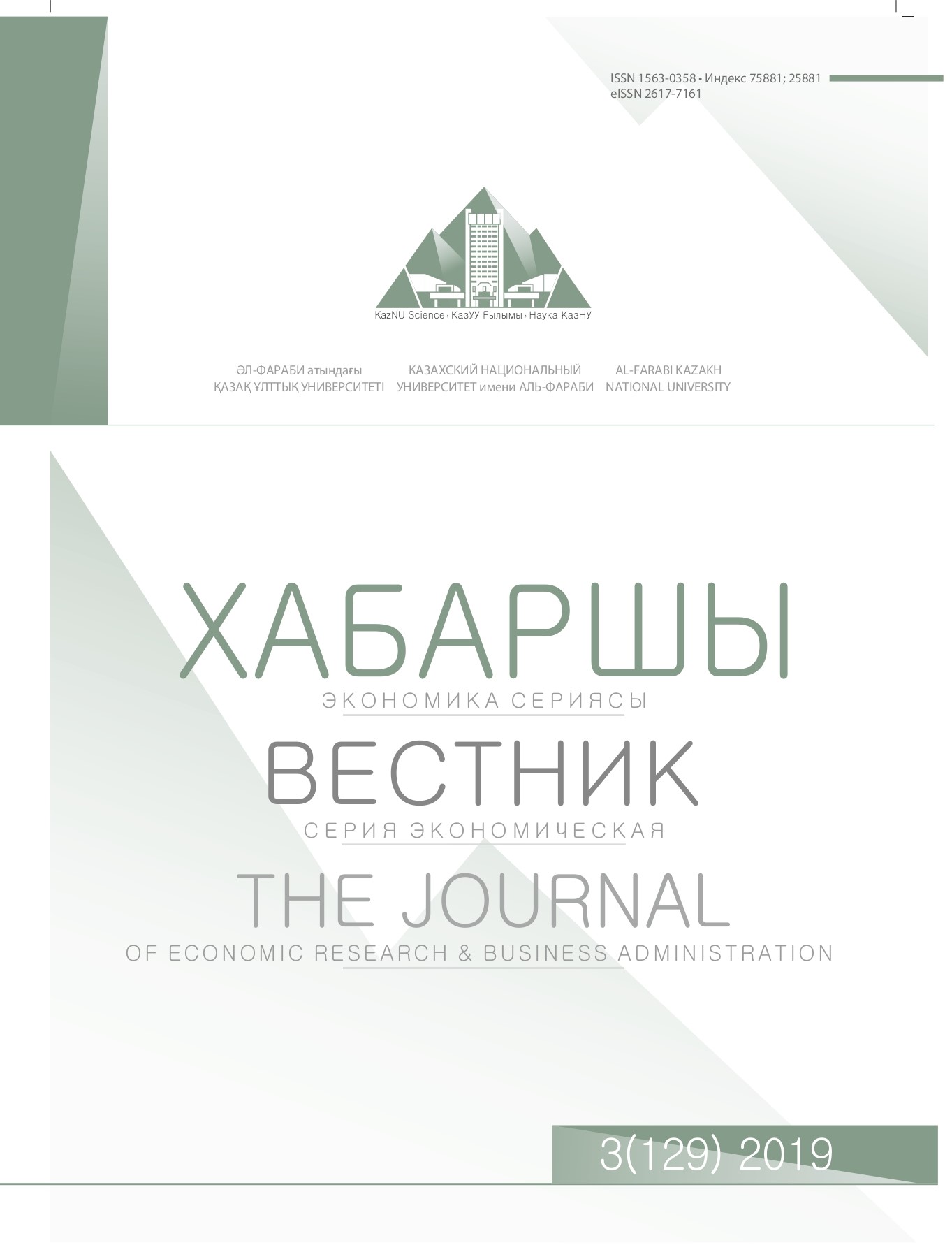Socially oriented regional tax policy: theory and methodology
DOI:
https://doi.org/10.26577/be-2019-3-e11Abstract
The article is devoted to methodological aspects of formation and implementation of socially oriented regional tax policy. The main directions and ideas of the study consist in the theoretical justification and development of methodology for the formation and implementation of socially oriented regional tax policy aimed at harmonizing the interests of participants in tax relations, taking into account the level of human capital development in the regions, the implementation of basic principles of taxation and the possibility of increasing the tax potential of the region. Contribution to the development of the theory of Finance has developed the concept of socially oriented regional tax policy, theoretical positions are complementary to the theory of taxation to clarify the content of the basic concepts, definition of region from the position of subject-object relations in the field of differentiation of powers of authorities, the conceptual interpretation of the impact of taxation on human capital development and socio-economic development of the region. The research methodology consisted in the development of tax policy directions, strategy of socio-economic development of Russian regions through the author’s models, mechanisms, algorithms and recommendations. The results of the study are recommended for use by public authorities in the formation of tax policy, the subjects of Russia in the development of regional development strategy and determining the directions of regional tax policy.













